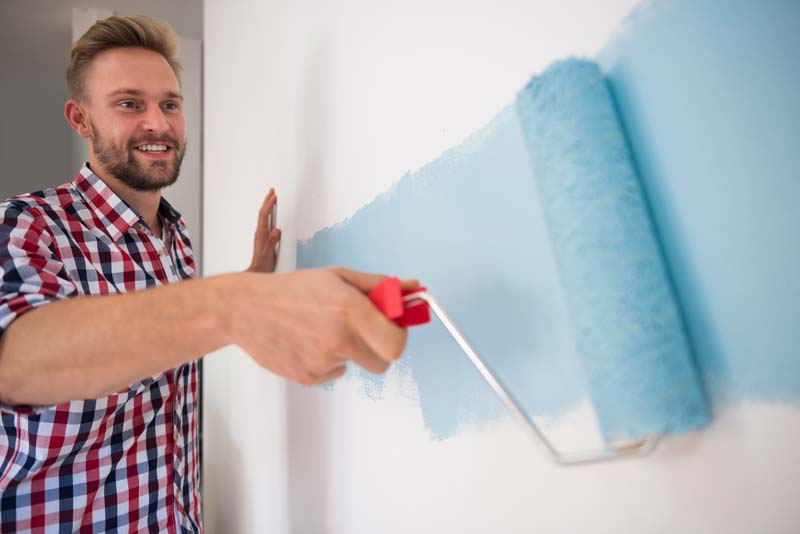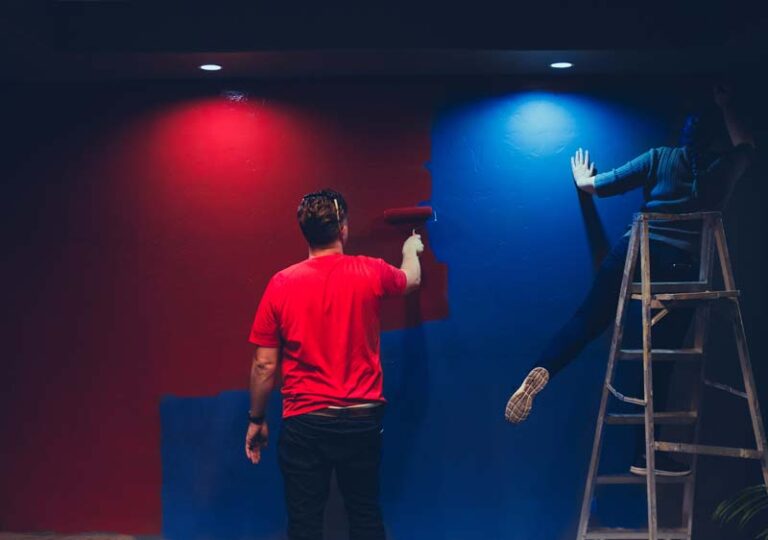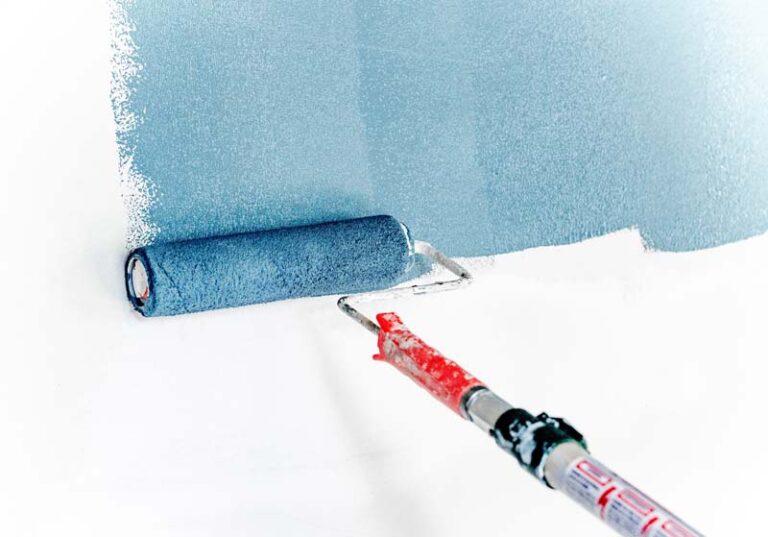- Free Estimates

Experts in the design industry typically frown upon and do not recommend painting over wallpaper. However, use the right methods and equipment. You can give your home a fashionable and inexpensive new look without spending hours tearing down faded floral wallpaper and scraping off dried glue.
Glastonbury Professionals House Painters, the best house painter in Glastonbury, CT, prepared tips and tricks on painting over wallpapers.
If you consult a house painter in Glastonbury, Connecticut, or a paint manufacturer, they will probably recommend that you strip the wallpapers off the wall and any existing adhesive before painting. However, wallpaper removal can occasionally cause damage to the underlying wall. This can occur particularly when wallpaper is applied to untreated drywall or plaster. Alternatively, you may have to remove multiple layers of wallpaper, which might make the task significantly more difficult.
Expert house painters in Glastonbury, CT, recommend removing wallpaper before painting for ideal and long-lasting results. Attempting to paint over previously installed wallpaper may result in paint bleeding through at the wallpaper’s original installation’s row ends.
Additionally, because most wallpaper patterns have texture, the paint might also pick up on those details. Water in the paint can also weaken the wallpaper’s adhesive, which could cause peeling or bubbling.
Wallpaper removal comes with its own set of challenges. The task might be time-consuming and complex depending on how and when the wallpaper was installed. Especially in an older home where there may be multiple layers of wallpaper, removing it can be a tedious and time-consuming process.
Whether you decide to remove the wallpaper or not is a decision that should be made with an eye toward the future. If you want to stay in your house for the foreseeable future, you’ll need to roll up your sleeves and strip off the wallpaper.

Painting over the surface of specific wallpapers is not recommended by expert house painters in Glastonbury, CT. This includes wallpaper peeling in multiple spots and wallpapers not made to withstand wear and tear, such as fabric-backed vinyl. However, this type of wallpaper has the benefit of being relatively easy to remove. In general, wallpaper that is difficult to remove is an ideal candidate for painting over and vice versa.
Before deciding to paint over wallpaper, it’s best to try removal. Consider your positive and negative past experiences as factors of where you should concentrate your efforts. Taking down wallpaper is already a cumbersome task, but removing wallpaper that has been painted over is an awful job.
Nonetheless, wallpaper can be painted over with great care and caution. Planning is essential for success in this endeavor.
First, check that the seams are securely attached to the wall’s surface. Apply wallpaper glue where the paper is peeling off. Not doing so will make the edges look even worse after primer and paint have seeped under them. Grab a rag or duster to clean the wall and wipe away the dust. Do not wash the wallpaper, as water can saturate and reactivate the adhesive, causing it to peel off.
Avoid using regular masking tape, which can peel off the painted surface. Instead, use specialized painter’s tape to secure the ceiling, moldings, and baseboards. You should begin painting at the ceiling with an angled brush and then work your way down the wall using a roller in a “W” pattern, traveling back and forth until the whole surface is covered. The concentration of paint on the roller while painting in an up-and-down movement will produce additional lines.
The odor of oil-based paint is pungent, so open the windows and let in some fresh air. Before the odor dissipates in approximately 24 hours, it is advisable to wear an N-95 mask to protect yourself from fumes. Those sensitive, including those with respiratory problems, should be asked to leave the area during this time.
Make sure you’re using a brush designed for oil paint, as it will have more bristles to help it hold onto the paint. Using a brush of inferior quality will leave behind brush bristles and traces on the wall.
Use a solvent to clean your brushes, such as paint thinner. Brushes should be placed in the solvent. Then, spin them in the bucket to remove as much paint as possible. Allow them to dry naturally and use them exclusively for oil painting.

Painting over wallpaper can be daunting, especially for homeowners who have yet to experience house painting. That’s where Glastonbury Professionals House Painters come to help. Their professional house painters in Glastonbury, CT, can accommodate your painting needs whether the task requires painting over wallpaper or a plain wall. Contact them today for a free estimate and consultation!